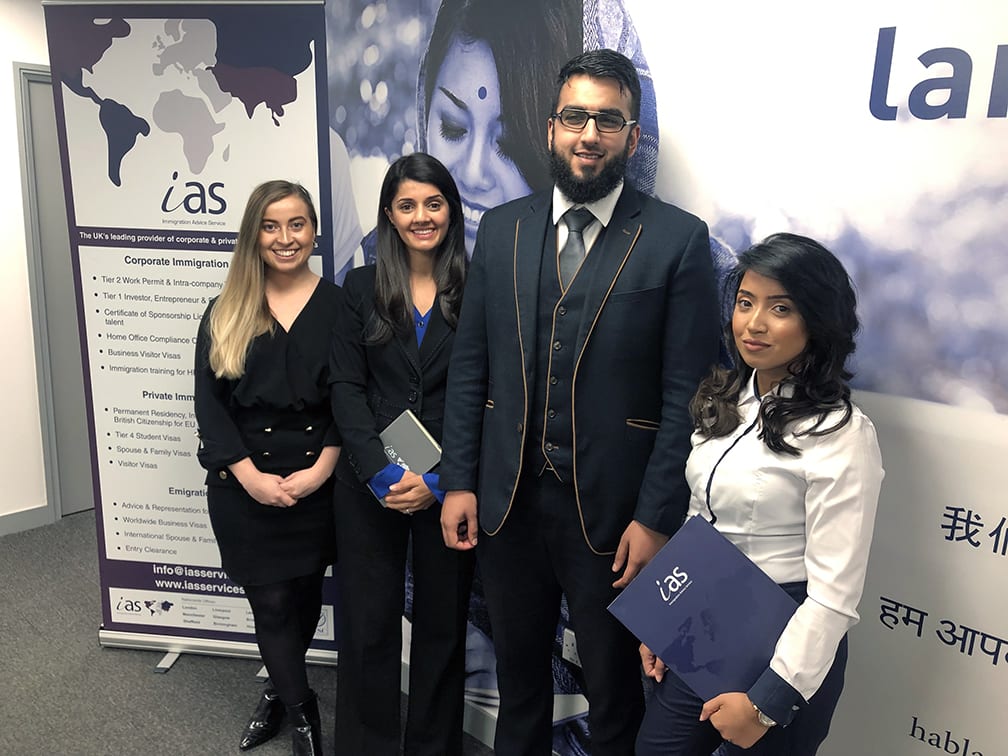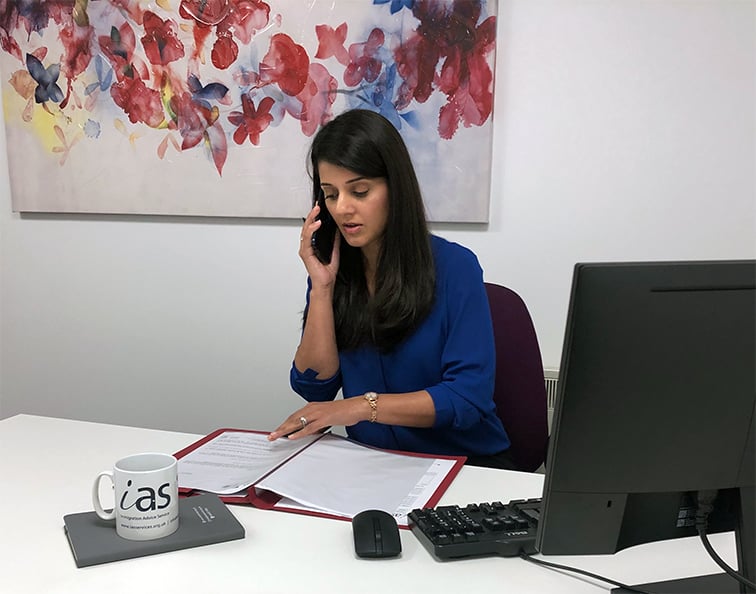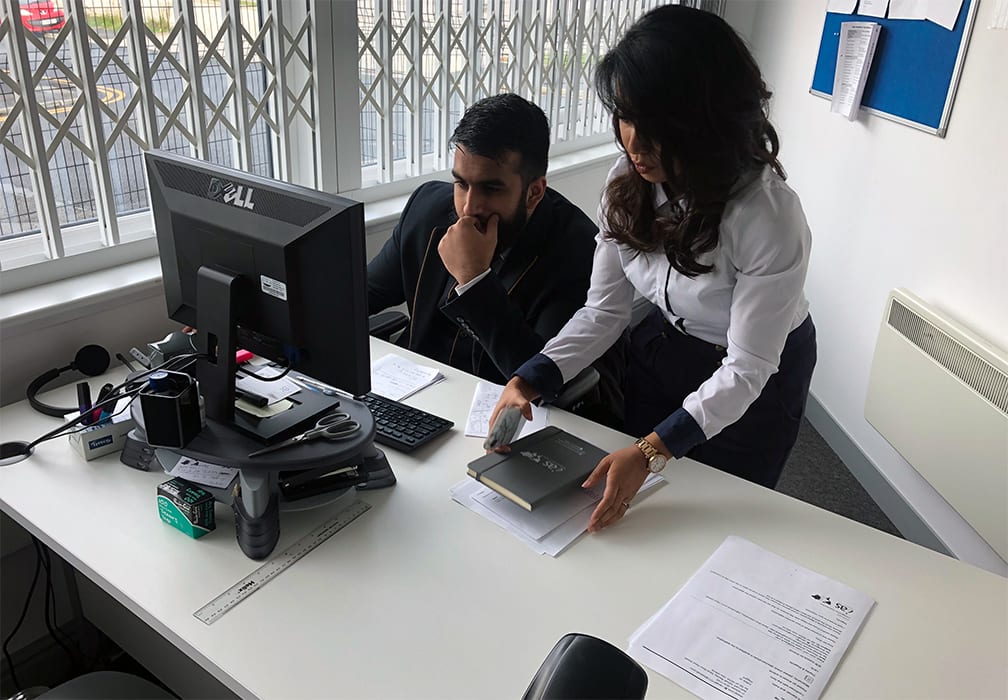F1 Visa To Green Card
If you are an international student who lives and studies in the United States, and you hold an F1 Visa, you may be able to apply for a Green Card and become a lawful permanent resident if you wish to remain in the US after your studies.
To find out more about how to switch from an F1 Visa to a Green Card, call IAS at +1 844 290 6312.
Can F1 Visa Holders Apply for a Green Card?
F1 Visa holders who wish to stay in the US after they complete their studies can apply for a Green Card in several ways. Each Green Card category has eligibility requirements that applicants must fulfill for their Green Card application to be successful.
Some routes from an F1 non-immigrant visa to a Green Card are less complicated and more popular for students than others. However, which path applies to you depends on your circumstances and whether you fulfill the eligibility requirements for the Green Card category you’re applying for.
If you’re still determining whether you are eligible to apply for a Green Card as an F1 Visa holder, contact IAS to receive professional immigration advice and have your case assessed to find the most appropriate route to a Green Card based on your circumstances. Call +1 844 290 6312 or chat with one of our advisers online.
Requirements for F1 Students Applying for Green Card
To obtain a Green Card, F1 students must meet the eligibility criteria of one of the possible routes to a Green Card. Holding the F1 Visa itself does not make the applicant eligible for the Green Card. The F1 Visa holder must first switch to a different visa or change their circumstances to be able to apply for permanent residency through one of the possible routes. Therefore, the requirements differ depending on the route best suited for the applicant.

Paths to Green Card from an F1 Visa
The most common paths to a Green Card from an F1 Visa is self-petitioning as a person with extraordinary abilities, adjusting status to a Dual Intent Visa, becoming an investor in the US, or marrying a US citizen.
Adjusting F1 Visa Status to a Dual-Intent Visa
A Dual-Intent Visa allows the F1 Student Visa holder to be temporarily present in the US with the intention to stay in the US permanently. Changing your F1 single-intent status to a Dual-Intent Visa would provide you with an opportunity to apply for a Green Card.
After completing your studies in the US, you continue to work through curriculum practical training or optional practical training (OPT). The curriculum practical training might allow you to be sponsored by the school to stay in the US and work as an associate professor. The OPT will enable you to receive work experience in the US and find a job with a US employer who may sponsor you to get an H-1B Visa, which you can later use to move to a Green Card.
Self-Petition as a Person with Extraordinary Abilities for an EB1 Visa
Most international students coming to the US to study enrol in bachelor’s and master’s degrees and develop high-level skills and abilities in their disciplines.
When you complete your studies and gain adequate qualifications, you may be able to self-petition for an EB-1 Visa. The EB-1 Visa is an employment-based US visa for applicants with extraordinary abilities in the sciences, arts, education, business or athletics. To qualify for the EB-1 Visa, applicants must demonstrate that they have achieved accomplishments.
The qualifying achievements are rigorous and include accomplishments such as a distinctive award, showcase or exhibit of work, noteworthy research, publication of articles in journals or in the media, being invited as an expert to critique other people’s work, mainstream success in the performing arts, and more.
Other Employment-Based Visas Used to Go From an F1 Visa to a Green Card
Another employment-based visa that can be used to move from an F1 Visa to a Green Card is an EB-2 Visa. This is a Second Preference Visa for professionals holding advanced degrees or showing remarkable talent in disciplines such as the arts, sciences or business.
Applicants can’t apply for the EB-2 Visa on their own. Their employer is required to petition for the applicant by submitting the petition to the US Citizenship and Immigration Services (USCIS). Applicants must also evidence their advanced degree by providing supporting documentation, including transcripts from their college or university.
F1 Visa holders can also move to the Third Preference Visa (EB-3) if they are professionals, skilled workers, or other workers. They can then move from this employment-based visa to the Green Card if they submit supporting documents such as adequate labor certification or work permit with a minimum of two years of work experience or training in their fields.
If you are unsure how to apply for an Employment-Based Visa as an F1 Visa holder, contact IAS to learn about the process of switching from a Student Visa to an Employment-Based Visa. Call +1 844 290 6312 or chat with one of our advisers online.
The Process of Moving From an F1 Visa to a Green Card Through Marriage
F1 Visa holders have the option to switch from an F1 Visa to a Green Card by marrying a US Citizen or a Lawful Permanent Resident. The marriage must be genuine, and you must demonstrate evidence that you did not get married solely to obtain the Green Card. This is one of the most common routes to obtain a Green Card as an F1 Student Visa holder.
Green Card Application Process for Spouses of US Citizens
If the Green Card applicant is a spouse of a US Citizen, they must submit a Petition for Alien Relative (Form I-130), which is a family sponsorship form filled out and signed by the US citizen who is sponsoring their Green Card applicant spouse.
Once the Petition for Alien Relative is accepted, the Green Card applicant can submit the Green Card application by filling out Form I-485. Along with the supporting documents that the applicant must submit with their Green Card application, they must prove to the USCIS that they have married their spouse “in good faith” and not for the purpose of obtaining a Green Card.
Green Card Application Process for Spouses of Green Card Holders
If the spouse of the Green Card applicant is a Green Card holder, the procedure is initiated the same way. The Green Card holder must submit the Form I-130 to the USCIS. Once the application is accepted, the USCIS provides the applicant with a visa number, which will allow the applicant to fill out Form I-485 and apply for a Green Card.
However, if the visa number is granted after the F1 Visa expires, the student must leave the US, return to their home country, and apply for a Green Card online by submitting a Green Card application or Form DS-260 (Immigrant Visa Electronic Application).
The 90-Day Rule
The USCIS uses the 90-Day Rule when evaluating Green Card applications through marriage to determine whether the applicant entered the US and engaged in conduct that is not allowed with their non-immigrant status. If the applicant enters the US and gets married to a US citizen or a lawful permanent resident within the first 90 days, the USCIS will investigate whether the marriage was solely for the purpose of receiving a Green Card.
Therefore, it is important to keep the 90-day Rule in mind when applying for a Green Card or a change of status, as it can show the original intention of your coming to the US. To avoid triggering the 90-day Rule, it’s best to wait 90 days after entering the US before getting married or before applying for a marriage-based green card.
Becoming an Investor in the US
Another path F1 students can take to get a Green Card is by becoming an investor. This is one of the more expensive routes applicants can take to get a Green Card. However, it is still significant if you wish to settle in the US long-term.
To get a Green Card by investment, applicants must invest a minimum of $800,000 or $1,050,000 in a US commercial enterprise that provides more than ten permanent jobs; you could be eligible to switch from an F1 Visa to an EB-5 Visa and ultimately obtain an Investor Green Card.

Application Process for a Green Card from an F1 Visa
To apply for a Green Card as an F1 Student Visa holder, most commonly, someone must file an immigrant petition for you. Depending on who is petitioning for you, they must fill out an adequate form. The most common forms are the Petition for Alien Relative (I-130) and Immigrant Petition for Alien Worker (I-140).
Once the petition is approved, you might apply for a Green Card from within the US, through USCIS or from outside the US through the US Consulate in your home country. You must provide supporting documents for your application and any necessary evidence to prove your eligibility.
You will then be invited for a visa interview and to provide your fingerprints, photos and a signature. Once your application is completed and submitted, you will wait to receive a decision on your Green Card application.
The Green Card Application Processing Time
The USCIS processing time for the Green Card application depends on the Green Card type you’re applying for. For example, a Family-Based Green Card for a spouse of a US citizen takes between 8 and 69 months to be received. Meanwhile, an Employment-Based Green Card for applicants with extraordinary abilities takes between 20 and 22 months to be processed.

How Can IAS Help?
Applying for a Green Card is a popular desire of many immigrants completing their studies in the US. There are various paths to a Green Card from an F1 Visa; deciding which path is best for your circumstances might be challenging.
Our team of immigration advisers helps many immigrants receive their Green Cards daily by assisting applicants through the application process, gathering the necessary supporting documents, and preparing them for the visa interview to guarantee the highest chances of Green Card approval.
Contact IAS to receive professional advice on your case and find out how we can help you with your Green Card application. Call +1 844 290 6312 or chat with one of our advisers online.
Legal Disclaimer
The information provided is for general informational purposes only and does not constitute legal advice. While we make every effort to ensure accuracy, the law may change, and the information may not reflect the most current legal developments. No warranty is given regarding the accuracy or completeness of the information, and we do not accept liability in such cases. We recommend consulting with a qualified lawyer at Immigration Advice Service before making any decisions based on the content provided.
Last modified on October 6th, 2025 at 8:29 am
Advice Package
Comprehensive immigration advice tailored to your circumstances and goals.
Application Package
Designed to make your visa application as smooth and stress-free as possible.
Fast Track Package
Premium application service that ensures your visa application is submitted to meet your deadline.
Appeal Package
Ensure you have the greatest chance of a successful appeal. We will represent you in any case.

The Advice Package
With our untimed Advice Session, our professional immigration lawyers will review your case and provide you with comprehensive advice, completely tailored to your needs and your situation.

The Application Package
With our Application Package, your dedicated caseworker will advise you on your application process and eligibility. Your legal advisor will then complete and submit your forms to the Home Office on your behalf.

The Fast Track Package
Our Fast-Track Application Package is a premium service for those who need to submit their application in time with their deadlines. Your case will become a top priority for our lawyers and you will benefit from our highest-quality services.

The Appeal Package
By choosing our Appeal Package, you can rely on our lawyers’ legal knowledge and experience to ensure you have the highest chance of a successful appeal. We will also fully represent you in any hearings/tribunals.
Related pages for your continued reading.
FAQs
There are various reasons why your Green Card application might be denied. The most common causes include:
- Failing to evidence a valid and genuine marriage
- Incomplete Green Card application with missing information, signatures, photos or translations
- Ineligibility due to, for example, criminal records, medical issues, or lies
You might be eligible for a Family Preference Green Card if you are one of the following:
- an unmarried child older than 21 years of age of a US citizen
- a spouse or unmarried child under the age of 21 of a US Permanent Resident
Yes. You can reduce Green Card waiting time by letting your sponsor apply for “premium processing” or entering a Green Card Lottery.
The premium processing filing fee costs $2,805 and guarantees that the Green Card application will take up to 15 calendar days to process.
The Green Card Lottery program gives 55,000 people every year a chance to receive a Green Card if they meet eligibility criteria.

